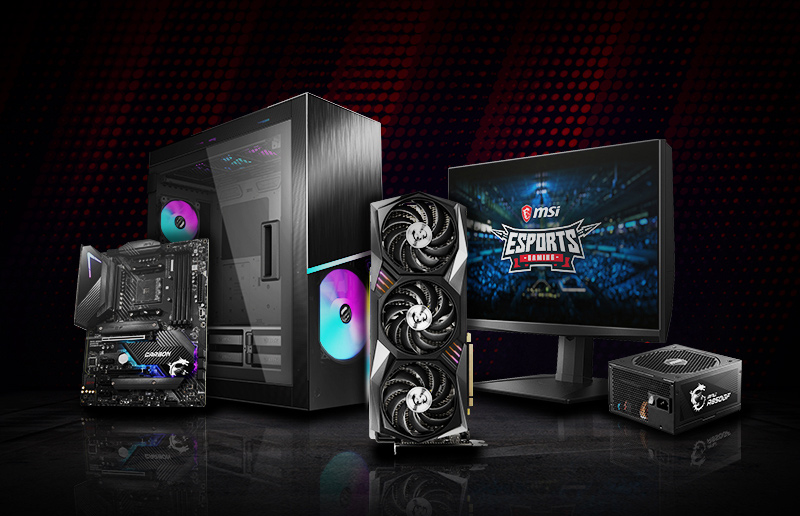
All the videos and images you can see on your monitor are due to the GPU or Graphics Processing Unit, also known as the graphics card. You can come across processors with integrated graphics and use them for low graphic needs.
However, if you want to use it for AAA or mid-level titles, a dedicated graphics card for PC will offer better performance. This post discusses the core components of graphics cards for upgrading your knowledge.
Different graphics cards come in varying form factors. However, they all offer similar main components. Some of the essential parts are as follows:
The graphics card contains the GPU, the fundamental part of a graphics card, and is responsible for graphics processing. When you compare it to a processor’s cores, it comprises over thousand units that perform complicated graphics operations.
The graphics chip consists of CUDA cores, transistors, and streaming multiprocessors. It accelerates the image rendering speed of the gaming PC.
VRAM or video memory stores critical data for evaluating files for videos and images and showcasing the graphics on your PC and works as the graphic processing unit’s cache. VRAM is present in the close vicinity of the GPU as opposed to RAM. As a result, it boosts data transfer speed and reduces input lag.
Another component you should know is the memory interface. It informs you about the bandwidth for accessing the data. Increased bandwidth will ensure the data transfer takes less time. This quality is essential when playing games with rapidly changing images or a higher refresh rate.
Buy a gaming graphics card with a particular bit rate for better performance. Memory interface resembles storage, where increased bit rate translates as more space for orderly placing data. As a result, you can access the data faster as well.
Higher-performing GPUs require an effective cooling system. Else, the result is an overheated GPU with subdued performance. Active and passive cooling options are present based on your GPU. Active cooling involves the direct transport of heat, usually with the help of a fan. It produces noise.
Passive cooling uses a cooling medium like liquid to transport heat. The cooling device’s larger surface enables increased heat absorption and no noise production.
To attach your graphics card for PC to the motherboard, your GPU has a PCIe slot or interface. Commonly you will need a PCIe x8 or PCIe x16 to plug in your GPU.
With the help of an external interface, connecting graphics card to LCDs or monitors is possible via relevant cable. Inexpensive options offer ports for Digital Video Interface (DVI) and Video Graphics Array (VGA), while advanced models have DVI with High-Definition Multimedia Interface (HDMI). HDMI can carry sound signals.
Each component is present on the Printed Circuit Board or PCB that makes up a GPU’s motherboard. Your graphics card also has capacitors, resistors, etc.
Choosing a graphics card is vital for playing advanced and graphically demanding games or using heavy graphic software. These advanced devices comprise multiple components, including GPU, VRAM, cooling equipment, memory interface, output interface, and PCIe slot. These components are available on the printed circuit board and run to display images quickly.
articlelength,updownews,livejustnews,newsalltype,thenextlaevel,justplangrow,approvedblog,letshareinfo,larablogy,updatexpert,gpforme
… [Trackback]
[…] Here you will find 79691 additional Information to that Topic: qasautos.com/a-detailed-introduction-to-components-of-your-graphic-card/ […]
… [Trackback]
[…] Read More on that Topic: qasautos.com/a-detailed-introduction-to-components-of-your-graphic-card/ […]

WhatsApp us